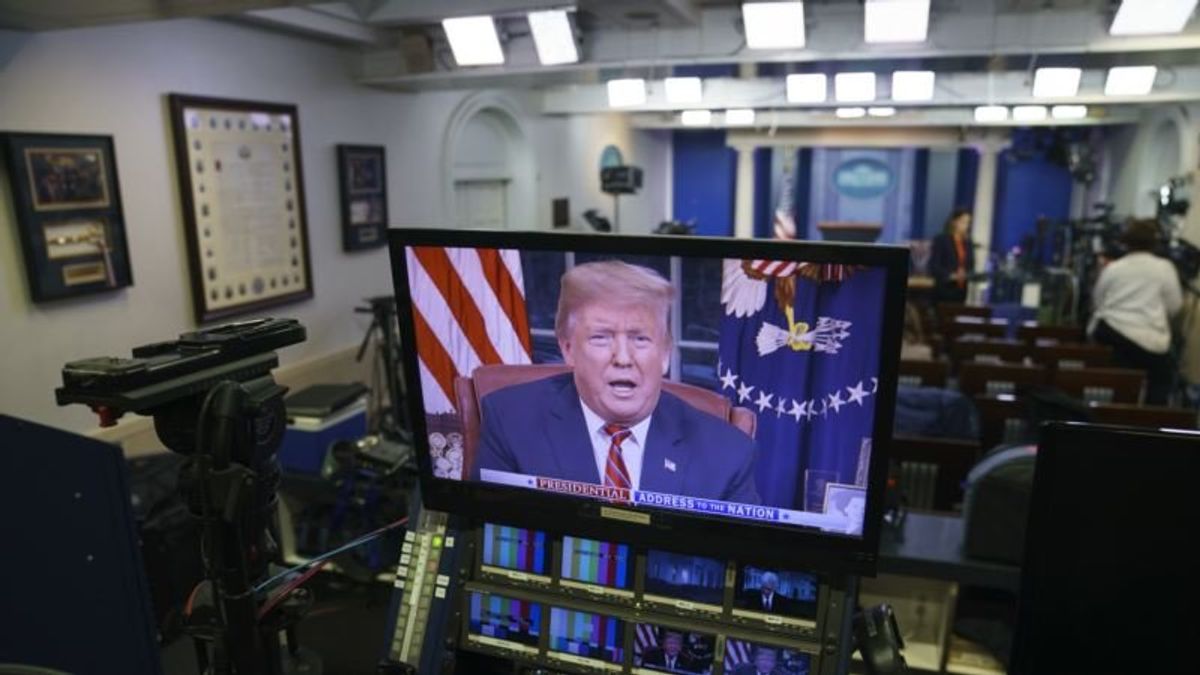
AP Fact Check: Trump Oversells Wall as a Solution to Drugs
AP Fact Check: Trump Oversells Wall as a Solution to Drugs

In his prime-time speech to the nation, President Donald Trump wrongly accused Democrats of refusing to pay for border security and ignored the reality of how illicit drugs come into the country as he pitched his wall as a solution to trafficking.
A look at his Oval Office remarks Tuesday night:
TRUMP: "Our southern border is a pipeline for vast quantities of illegal drugs, including meth, heroin, cocaine and fentanyl. Every week, 300 of our citizens are killed by heroin alone, 90 percent of which floods across from our southern border."
THE FACTS: A wall can't do much about that when drug trafficking is concentrated at land ports of entry, not remote stretches of the border.
The Drug Enforcement Administration says "only a small percentage" of heroin seized by U.S. authorities comes across on territory between ports of entry. The same is true of drugs generally.
In a November report, the agency said the most common trafficking technique by transnational criminal organizations is to hide drugs in passenger vehicles or tractor-trailers as they drive into the U.S. though entry ports, where they are stopped and subject to inspection. They also employ buses, cargo trains and tunnels, the report says, citing other smuggling methods that also would not be choked off by a border wall.
Trump recently denied that traffickers use entry ports at the southern border, contradicting the evidence and assertions of his drug enforcement personnel.
Trump stretched credulity even more by comparing the wall money he wants from Congress to the cost of the entire drug problem in the U.S.: "The border wall would very quickly pay for itself. The cost of illegal drugs exceeds $500 billion a year, vastly more than the $5.7 billion we have requested from Congress."

TRUMP: "Democrats will not fund border security."
THE FACTS: That's not true. They just won't fund it the way he wants. They have refused his demand for $5.7 billion to build part of a steel wall across the U.S.-Mexico border.
Democrats passed legislation the day they took control of the House that offered $1.3 billion for border security, including physical barriers and technology along the U.S. southern border.
Senate Democrats have approved similar funding year after year.
Democrats have also supported broader fence-building as part of deals that also had a path to legal status for millions of immigrants living in the country illegally.
In 2013, Senate Democrats voted for a failed immigration bill that provided roughly $46 billion for a number of border security measures — including new fencing — but that legislation would have created a pathway to citizenship for some of the estimated 11 million immigrants living in the U.S. illegally.
The 2013 Border Security, Economic Opportunity and Immigration Modernization Act had money to double the number of miles of fencing, to 700 miles (1,126 km), as well as for more border patrol agents. It also had a mandatory employment verification system to ensure all U.S. employees are authorized to work in the country. In exchange, however, the bill allowed immigrants living in the country illegally to apply for a provisional legal status if they paid a $500 fine and had no felony convictions.
As well many Democrats voted for the Secure Fence Act of 2006, which has resulted in the construction of about 650 miles (1,050 kilometers) of border barrier. But that legislation didn't authorize the kind of wall Trump has long been advocating since he launched his campaign.

TRUMP: "The wall will also be paid for indirectly by the great new trade deal we have made with Mexico."
THE FACTS: Mexico is not paying for the wall despite what Trump promised during the 2016 campaign, and nothing in the trade agreement would cover or refund the construction cost.
Trump is assuming a wide variety of economic benefits will come from the agreement, but they can't be quantified or counted on. For example, he has said the deal will dissuade some U.S. companies from moving operations to Mexico and he credits that possibility as a payment by Mexico for his wall.
The deal updates the North American Free Trade Agreement, in the main preserving NAFTA's liberalized environment of low or no tariffs among the U.S., Mexico and Canada, while making certain improvements for each country. Trump stated inaccurately that it's "brand new. It's totally different."
Moreover, it's not in effect. The deal has yet to be ratified in any member country and its chances of winning legislative approval are not assured.
Tags
US Politics President Trump Addresses Nation About Southern BorderNext PostTrump Demands Border Wall in Speech
President Trump Addresses Nation About Southern BorderNext PostTrump Demands Border Wall in Speech







